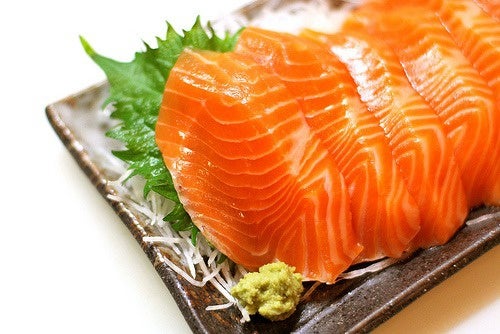Omega-3 fatty acids help to combat cardiovascular disease and increase the flexibility of the arterial walls, preventing hypertension. For them we can eat blue fish, or fortified foods

Fats are necessary for our food and body, but not all are equal, nor give us the same. There is a type called essential fatty acids, that name is because our body cannot synthesize them and they can only reach it through the diet.
Omega-3 fatty acids are part of the essential fatty acids and it has a very important and beneficial role.
Properties of omega-3 fatty acids
For starters, they are essential for the proper development of the eye and nervous system of the fetus; In addition, it seems that it plays a fundamental role in the cognitive development of children. As a result, a correct intake of omega-3 fatty acids during pregnancy, infancy and early childhood is fundamental. Proof of this is that breast milk is very rich in them.But if by some acids have become famous omega-3 is its backing to the development of cardiovascular disease, acting for it at different levels. Optimal consumption helps reduce triglyceride levels and increase the cholesterol HDL ("good cholesterol") and has a vasodilatory effect, which makes the risk of thrombosis, and therefore cardiovascular accident, decrease. But at the level of the circulatory system also gets increase the elasticity of the walls of the arteries, preventing hypertension.

Foods that contain omega-3 fatty acids
The main source of omega-3 fatty acids is oily fish, including salmon, sardines, tuna, mackerel, trout; and also include the seafood.The importance of omega-3 fatty acids was discovered thanks to a study that determined that the incidence of heart attacks and other cardiovascular diseases was much lower in the Eskimos being his power base in the other groups, the Bluefish.
In the plant world, nuts have a considerable amount of omega-3 fatty acids, as well as pumpkin seeds, flax, hemp, and among them the oil of evening primrose, sunflower, corn, etc.
If the consumption of fish blue two or three times a week, is incorporated in our diet our needs of omega-3 fatty acids are covered; If on the other hand, we don't like fish or we take very little, we will have to seek other sources, especially if we are in the stages that we have said that they are most needed (pregnancy, lactation, children). Currently, many foods marketed as in the case of milk, cheese, margarine, etc., take supplements of omega-3 fatty acids in their composition.

0 comentarios:
Post a Comment